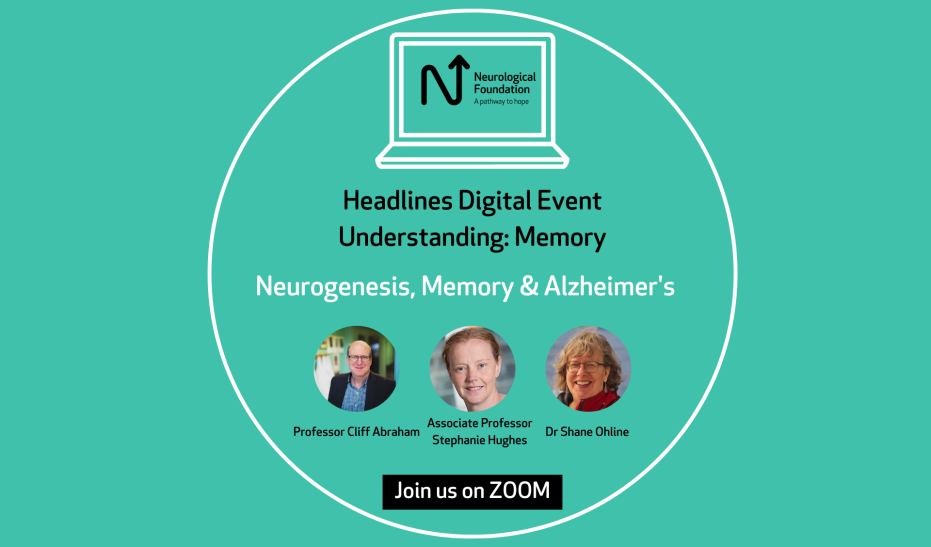The hippocampus, located deep in the temporal lobe, has a particular superpower. It is one of a very few parts of the brain that can generate new neurons throughout life, a process called adult neurogenesis. The formation and retention of hippocampus-dependent memories is impacted by neurogenesis, which can lead to enhancement of learning and increased neuroplasticity. This area of research has been growing and expanding in recent times with some spectacular results and hypotheses to be shared.
During this event, you’ll hear from three amazing minds who have been looking into memory research collectively, for over 20 years!
Professor Cliff Abraham was the founding Director of the Brain Health Research Centre at the University of Otago. He has a long-standing research interest in the neural mechanisms of memory in normal and diseased conditions. The Neurological Foundation has supported this research into memory through various grants since 1998.
Associate Professor Stephanie Hughes leads a lab developing tools and gene therapy vectors for Batten, Alzheimer’s and Parkinson’s disease at the Brain Health Research Centre, for which she is the current Director.
Dr Shane Ohline is a Postdoctoral Fellow in the Department of Physiology at the University of Otago, and is interested in brain neurogenesis and the role of abnormally functioning calcium channels in Alzheimer's disease.
Neuron regeneration is critical to maintaining our memory capacity across our lifetime. This incredible finding was proven only a few decades ago, raising many exciting new avenues of research for neuroscientists since.
Join us for this lively chat where this team of dedicated researchers will discuss how past discoveries are shaping the current landscape of research into memory and memory impacted neurological diseases. The potential of neurogenesis is largely unknown. It is hoped that new findings can contribute to a possible treatment for Alzheimers disease in future.







